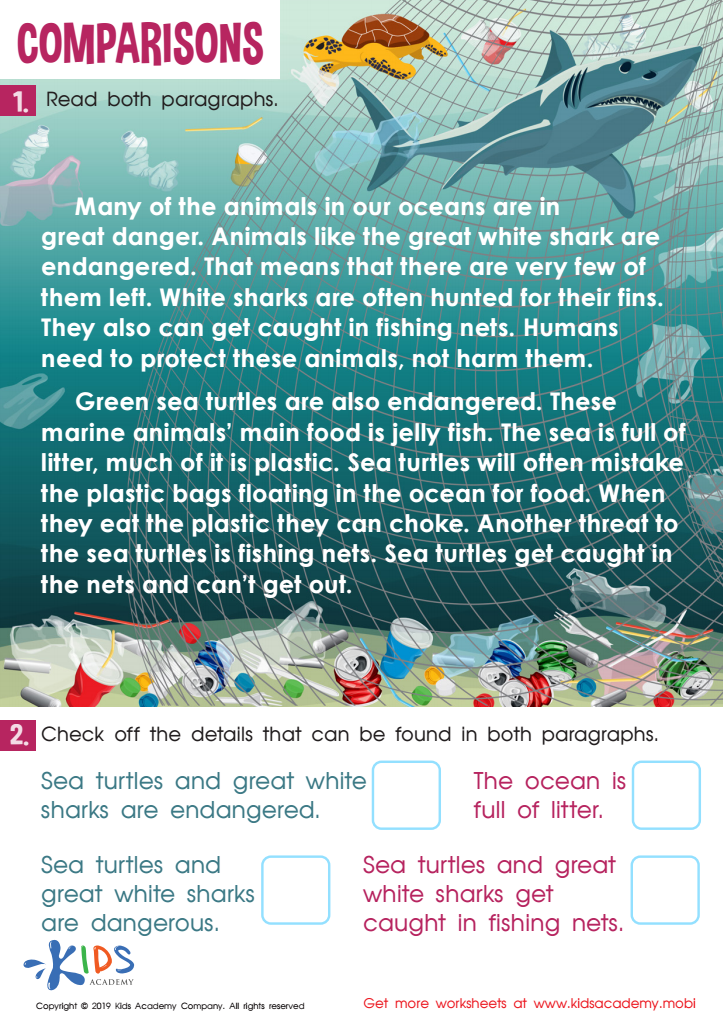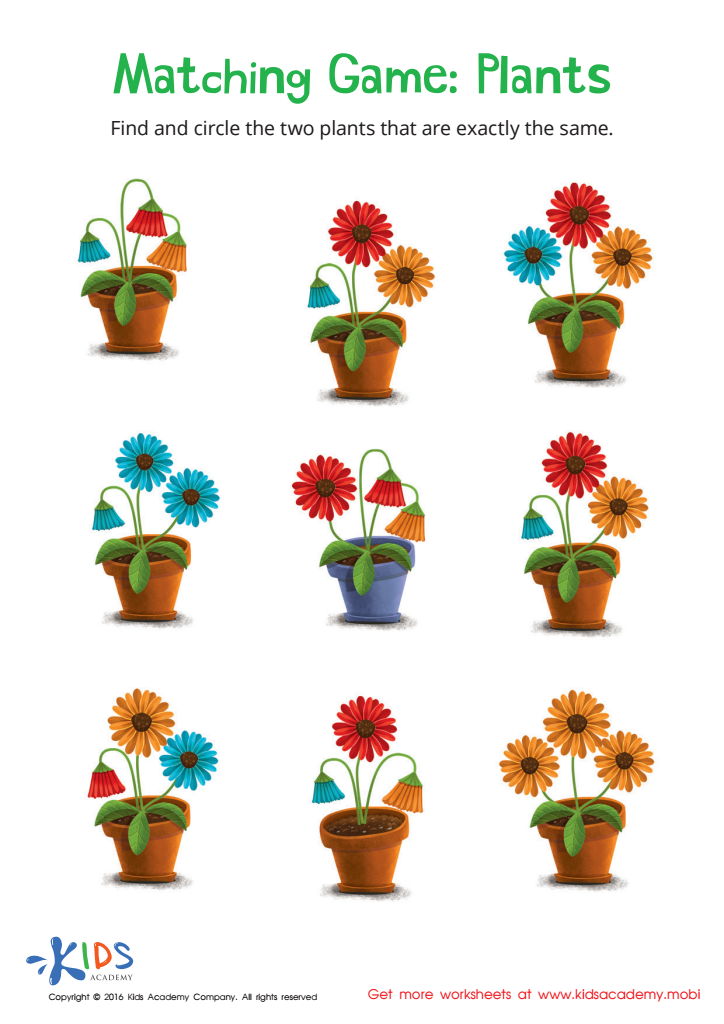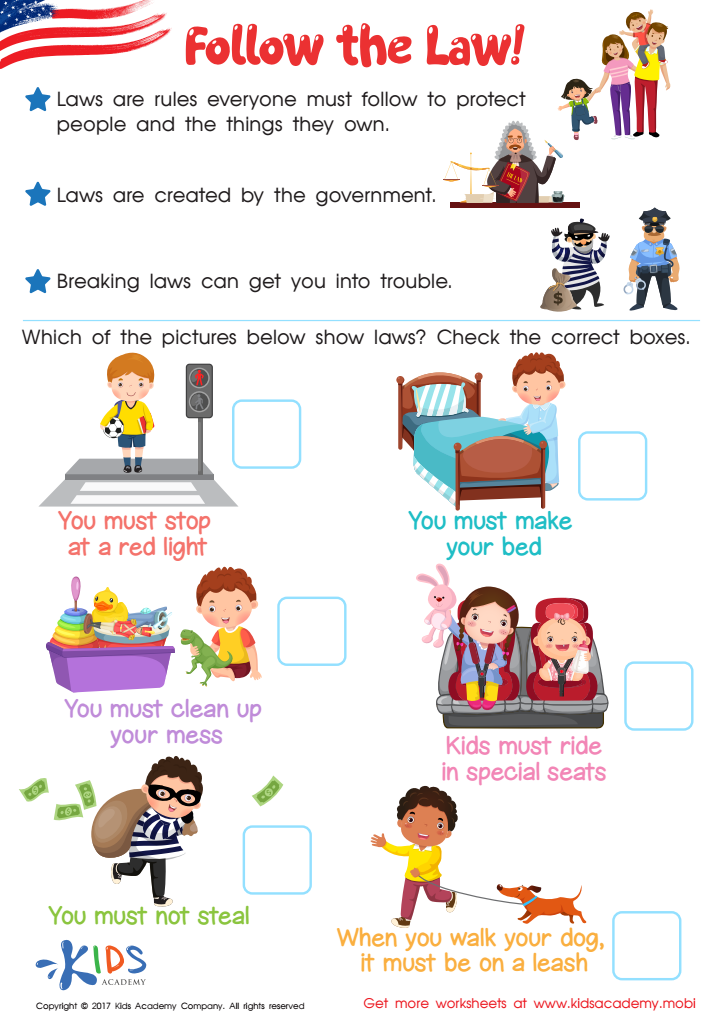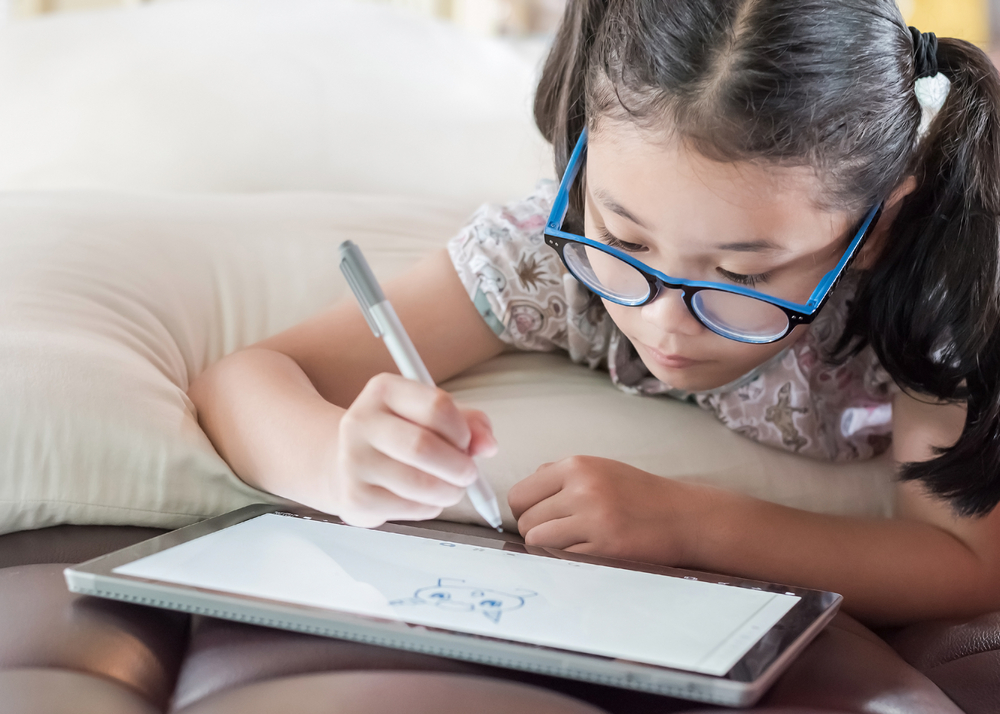Developing reasoning skills Worksheets for Kids
3 filtered results
-
From - To


Comparisons Worksheet


Matching: Plants Worksheet


Follow the Law Worksheet
Question/Answer
What are some effective activities to train students’ Developing reasoning skill when teaching them about Reading Non-Fiction?
Effective activities for training students' reasoning skills in reading non-fiction include conducting Socratic seminars to discuss texts critically, engaging in debates based on evidence from texts, implementing question-answer relationship (QAR) strategies to develop questioning skills, organizing jigsaw activities to analyze and synthesize information collaboratively, and using graphic organizers like Venn diagrams or cause-and-effect charts to visually map out logical relationships within texts.#$%
What does the Developing reasoning skill mean when it comes to Grade 3 Reading Non-Fiction learning?
Developing reasoning skills in Grade 3 Reading Non-Fiction involves teaching children to analyze information, make inferences, and draw logical conclusions based on the text. It encourages them to think critically about the content, understand cause and effect, and distinguish between fact and opinion, thereby enhancing their comprehension and analytical abilities when engaging with non-fiction materials.
How to train the Developing reasoning skill in Grade 3 students learning about Reading Non-Fiction?
To train Grade 3 students in developing reasoning skills for reading non-fiction, use activities that encourage critical thinking. Start with asking questions that require students to infer or predict information from texts. Integrate compare and contrast exercises with different non-fiction materials. Incorporate discussions that challenge students to justify their thoughts or opinions using evidence from the texts they read.

 Assign to the classroom
Assign to the classroom












